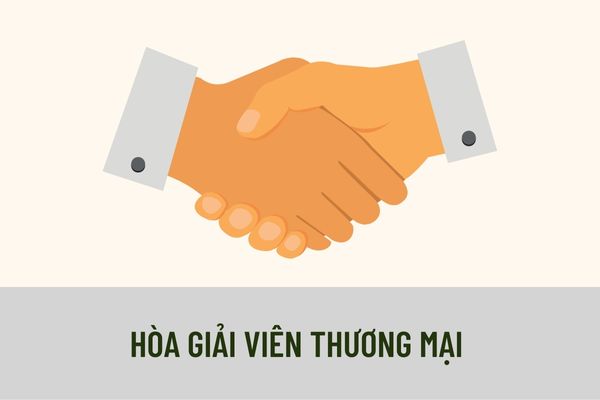What are the criteria for a commercial mediator in Vietnam? What are the prohibited acts of commercial mediators?
What are the criteria for a commercial mediator in Vietnam?
According to the provisions of Article 7 of Decree 22/2017/ND-CP of Vietnam, the criteria for a commercial mediator are as follows:
Criteria for a commercial mediator
1. A person who fully satisfies the following criteria may act as a commercial mediator:
a/ Having full civil act capacity as prescribed by the Civil Code; having good moral qualities and prestige, and working in an independent, impartial and objective manner;
b/ Possessing a university or higher degree and having at least 2 years’ working experience in the discipline he/she has studied;
c/ Having mediation skills and knowledge about law, business and commercial practices and relevant issues.
2. A commercial mediator may conduct commercial mediation in the capacity as an ad hoc commercial mediator or a commercial mediator of a commercial mediation institution in accordance with this Decree.
3. A commercial mediation institution may set criteria for its commercial mediators which are higher than those prescribed in Clause 1 of this Article.
4. The accused or defendants or those who are serving criminal sentences or have not had their criminal records expunged or are serving the administrative measure of consignment to a compulsory education institution or compulsory detoxification establishment may not act as commercial mediators.
Thus, a person who fully satisfies the following criteria may act as a commercial mediator:
+ Having full civil act capacity as prescribed by the Civil Code; having good moral qualities and prestige, and working in an independent, impartial and objective manner;
+ Possessing a university or higher degree and having at least 2 years’ working experience in the discipline he/she has studied;
+ Having mediation skills and knowledge about law, business and commercial practices and relevant issues.
The following entities may not act as a commercial mediator:
+ The accused or defendants or those who are serving criminal sentences or have not had their criminal records expunged
+ Those who are serving the administrative measure of consignment to a compulsory education institution or compulsory detoxification establishment.

What are the criteria for a commercial mediator in Vietnam? What are the prohibited acts of commercial mediators?
What are the rights and obligations of commercial mediators in Vietnam?
According to the provisions of Article 9 of Decree 22/2017/ND-CP of Vietnam on the rights and obligations of commercial mediators as follows:
Rights and obligations of commercial mediators in Vietnam
1. A commercial mediator has the following rights:
a/ To accept or refuse to carry out commercial mediation activities;
b/ To refuse to provide information relating to a dispute, unless the information provision is agreed upon in writing by involved parties or required by law;
c/ To enjoy remuneration for commercial mediation activities as agreed upon with disputing parties;
d/ Other rights as prescribed in this Decree and relevant laws.
2. A commercial mediator has the following obligations:
a/ To comply with law and the codes of ethics and conduct applicable to commercial mediators; to work in an independent, impartial, objective and honest manner;
b/ To respect the agreement reached by involved parties if such agreement neither violates law nor contravenes social morality;
c/ To keep confidential information about the disputes of which he/she mediates the resolution, unless otherwise agreed upon in writing by involved parties or prescribed by law;
d/ To notify involved parties of his/her competence and mediation remuneration and costs before conducting mediation;
dd/ To refrain from acting as a representative of or an advisor for any of involved parties or concurrently acting as an arbitrator for the same dispute of which he/she is mediating or has mediated the resolution, unless otherwise agreed upon by the parties;
e/ Other obligations as prescribed in this Decree and relevant laws.
Thus, a commercial mediator has the following rights:
+ To accept or refuse to carry out commercial mediation activities;
+ To refuse to provide information relating to a dispute, unless the information provision is agreed upon in writing by involved parties or required by law;
+ To enjoy remuneration for commercial mediation activities as agreed upon with disputing parties;
+ Other rights as prescribed in this Decree and relevant laws.
In addition, a commercial mediator has the following obligations:
+ To comply with law and the codes of ethics and conduct applicable to commercial mediators; to work in an independent, impartial, objective and honest manner;
+ To respect the agreement reached by involved parties if such agreement neither violates law nor contravenes social morality;
+ To keep confidential information about the disputes of which he/she mediates the resolution, unless otherwise agreed upon in writing by involved parties or prescribed by law;
+ To notify involved parties of his/her competence and mediation remuneration and costs before conducting mediation;
+ To refrain from acting as a representative of or an advisor for any of involved parties or concurrently acting as an arbitrator for the same dispute of which he/she is mediating or has mediated the resolution, unless otherwise agreed upon by the parties;
+ Other obligations as prescribed in this Decree and relevant laws.
What are the prohibited acts of commercial mediators in Vietnam?
According to the provisions of Article 10 of Decree 22/2017/ND-CP of Vietnam on prohibited acts of commercial mediators, specifically as follows:
- Disclosing information about disputes or clients they know in the mediation process, unless otherwise agreed upon by disputing parties in writing or prescribed by law.
- Violating the code of ethics applicable to commercial mediators.
- Receiving or demanding any sum of money or benefit from involved parties in addition to remuneration and costs already agreed upon.
- Other prohibited acts as prescribed by law.
LawNet
